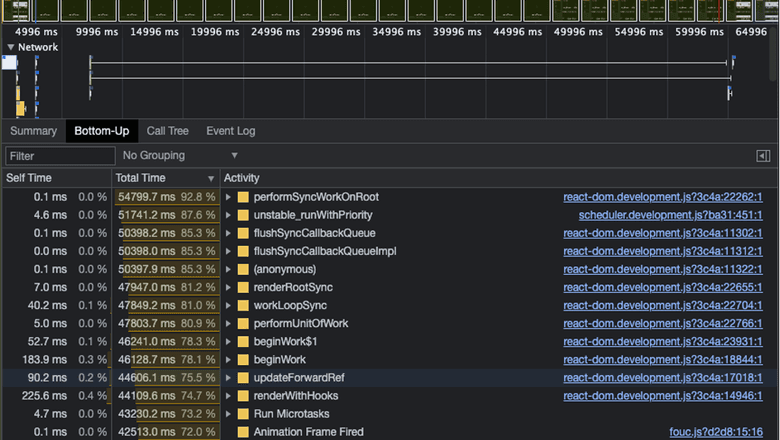
Custom Software vs. SaaS: How to Choose The Best One for Your Business?
When it comes to choosing how to solve operational or communications challenges a crucial decision often arises: should you opt for custom software development or a Software-as-a-Service (SaaS) platform? Both have their merits and drawbacks, and understanding them is key to making the best choice for your unique needs.
At Clock.co.uk, we've been helping businesses navigate these waters for years. Let's delve into the pros and cons, with some real-world examples to guide you.
SaaS: The "Off-the-Shelf" Solution
SaaS products are essentially ready-made software applications hosted by a third-party provider and accessed over the internet. Think of it like renting a car – you get a fully functional vehicle without the responsibilities of ownership.
Pros of SaaS:
- Speed and Ease of Deployment: SaaS solutions can be implemented quickly, often within days or weeks, as they require minimal setup.
- Lower Upfront Costs: Instead of a large initial investment, SaaS typically involves a subscription fee, making it more accessible for businesses with tighter budgets.
- Automatic Updates and Maintenance: The provider handles all updates, security patches, and maintenance, freeing up your internal IT resources.
- Scalability: Most SaaS platforms are designed to scale easily, allowing you to add or remove users and features as your business evolves.
Cons of SaaS:
- Limited Customisation: While some SaaS offers configuration options, you're largely restricted to the features provided. This can be a significant drawback if your business has highly specific or niche requirements.
- Vendor Lock-in: Migrating data and processes from one SaaS provider to another can be complex and costly.
- Security Concerns: You're relying on a third-party for the security of your data, which can be a concern for businesses handling sensitive information.
- Dependency on Internet Connection: SaaS requires a stable internet connection to function.
When SaaS Works Well:
Many UK businesses thrive on SaaS. For instance, Xero for accounting, Mailchimp for email or Slack for communications,
They offer robust, standardised solutions that meet the needs of a vast number of small and medium-sized enterprises, eliminating the need for each business to develop its own accounting software.
-1-1080x1080.png&w=3840&q=75)
Custom Software Development: Tailored to Perfection
Custom software is specifically designed and built to meet the unique requirements of a particular organisation. It's like commissioning a bespoke suit – perfectly fitted and designed just for you.
Pros of Custom Software:
- Perfect Fit: The software is built precisely to your specifications, addressing every unique business process and challenge. This can lead to significant efficiency gains.
- Competitive Advantage: Custom software can provide a unique edge over competitors who are using generic, off-the-shelf solutions.
- Scalability and Flexibility: Designed with your future growth in mind, custom software can easily evolve and adapt as your business needs change.
- Ownership and Control: You own the software, giving you complete control over its features, security, and future development.
- Enhanced Security: You have direct control over security protocols, which is crucial for sensitive data.
Cons of Custom Software:
- Higher Upfront Costs: The initial investment for custom development is typically significantly higher than SaaS subscriptions.
- Longer Development Time: Building custom software takes time, from initial planning and design to development and testing.
- Ongoing Maintenance and Support: You are responsible for maintenance, updates, and support, either internally or through your development partner.
- Requires Expertise: You'll need internal expertise or a trusted partner to manage the development process.
When Custom Software is the Champion:
For businesses with complex or highly specific needs, custom software is often the winning strategy.
Clock Custom Software Successes
Consider Clock's work with Hearst UK. The publishing giant needed a scalable platform to manage multi-brand membership programmes. They wanted to create new revenue streams and enhance engagement across global brands like Elle. A generic SaaS platform wouldn't be able to handle the complex, multi-brand architecture, seamless user journeys, and bespoke CMS required. Our custom-built platform was designed for this specific purpose, allowing Hearst to launch "Elle Collective" and manage multiple future membership programmes from a single, intuitive backend.
Another great example from our portfolio is our partnership with Mythical Society, the fan community for content creators Rhett & Link. Their previous platform was "clunky" and wasn't meeting the needs of their passionate fans. We designed and built a new, intuitive app and a redesigned website to serve as a central hub for exclusive content, drive memberships, and boost merchandise sales. This custom solution provided the unique features and performance required to supercharge fan engagement and monetisation for a large, global community.
Finally, in the publishing industry, while there are many off-the-shelf loyalty platforms available, these solutions often lack the deep integration and customisation that a major publisher needs. The Times+ loyalty programme is a prime example of where a bespoke solution was the only path to success. As the first of its kind in UK publishing, the platform had to be built from the ground up to integrate seamlessly with The Times' existing systems, offer unique "money can't buy" experiences, and provide granular data to reduce subscriber churn. The resulting custom platform was incredibly successful, quadrupling subscriber acquisition rates and becoming a key component of their retention strategy—a feat that a generic, one-size-fits-all solution simply couldn't have achieved.
How the Clock Development Process Works
Whether you lean towards custom development or integrating a SaaS solution, here at Clock, we can help you mitigate potential pitfalls.
- Thorough Requirements Gathering: We work closely with you to understand your exact needs, ensuring that a custom solution is perfectly aligned or that a chosen SaaS platform genuinely fits your requirements. This avoids costly reworks or feature gaps.
- Strategic SaaS Integration: If SaaS is the right path, we can help you choose the best platforms and integrate them seamlessly with your existing systems, preventing data silos and workflow inefficiencies.
- Scalable and Maintainable Custom Solutions: Our development process focuses on building robust, scalable, and easily maintainable custom software, reducing long-term support burdens.
- Security Best Practices: For all projects, we adhere to stringent security protocols to protect your valuable data, whether it's on a custom platform or being integrated with a third-party SaaS.
- Ongoing Support and Evolution: We offer comprehensive support and maintenance packages for custom software, ensuring your solution remains effective and up-to-date.
The Verdict: It Depends on Your Business
There's no single "right" answer. The ideal choice between custom software and SaaS depends entirely on your business's specific requirements, budget, timeline, and long-term goals.
If your needs are generic, and speed and cost-effectiveness are paramount, SaaS might be your best bet.
If your business has unique processes, requires a competitive edge, or demands complete control and scalability, custom software development will likely deliver the most value.
Ready to discuss which path is right for your business? We're here to help you to identify the perfect software solution.
Our Blogs
Still here? Check these out!










